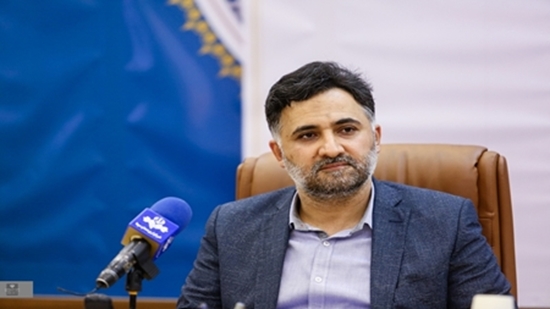An unprecedented step in the development of the knowledge-based economy with the implementation of the provincial cutting progra
Dehghani emphasized: distribution of justice and popularization of knowledge-based economy by supporting the provincial development of knowledge-based economy.
In the presence of the vice president for science, technology and knowledge-based economy, the minister of interior and a group of governors and members of parliament, cooperation agreements were signed for the provincial development of knowledge-based economy.

According to the communication and information center in the Vice Presidency of Science, Technology and Knowledge-Based Economy, with the presence of Ruhollah Dehghani, Vice President of Science, Technology and Knowledge-Based Economy, Ahmed Vahidi, Minister of the Interior, Governors of Yazd, Kerman, Zanjan, East Azarbaijan, Markazi and representatives of the people in these provinces in the Islamic Council, the provincial development agreements of knowledge-based economy were signed in line with the realization of Article 11 and 12 of the knowledge-based production leap law.
Ruhollah Dehghani stated that the provincial cutting plan for knowledge-based economy, which is being implemented today in the form of a joint agreement, is a big and unprecedented step to increase the role of knowledge-based industries in the development and progress of each province, and continued: the national cutting plan for knowledge-based economy. Two months of serious follow-up and interaction with the governorates in the form of a continuous and serious work, under these measures, the framework of the regulations and agreements for the development of the knowledge-based economy according to the capacities, capabilities and territorial purpose were determined. In the framework of this national program, the Vice Presidency of Science assigns some of his authority and duties to the provinces in the field of development of knowledge-based economy, so that the provinces move in the direction of development of knowledge-based economy based on territorial planning.
Referring to the explanation of the tasks and strategies of the participating provinces in this national program to move towards the development of the knowledge-based economy and based on these agreements, he added: the agreement that was signed today has indicators, values and goals, and in scheduled chapters, its progress is reviewed and evaluated; The indicators are reviewed and evaluated at six-month intervals, and the entire program is implemented within two years.
Dehghani considered the start of this national program as a big and unprecedented step in the development of knowledge-based economy with the participation and role-playing of the main and influential departments of the provinces and said: the determination and serious efforts of the various departments in the Ministry of Interior, the chairmen of the assembly of representatives of the provinces, the governors and the Vice Presidency of Science, each four sides of this agreement agree to support the development of knowledge-based economy on the specific frameworks based on the territorial development of each province.
The vice president of science, technology and knowledge-based economy added: the amount of commitments of each party is clearly defined and measurable. The main purpose of these agreements is to increase financial turnover, the number of companies, the number of knowledge-based products, specialized employment and other characteristics of the development of the knowledge-based economy.
One thousand to two thousand billion Tomans support for the provincial development of knowledge-based economy
Referring to the allocation of 1,000 to 2,000 billion Tomans of support for the development of the knowledge-based economy of each province, the head of the National Elites Foundation said: This support is a combination of sources of credits from the Vice Presidency of Science, sources of Note 18, sources of tax credits and the Innovation and Prosperity Fund with the participation of sources in province's finances are taken into account. The amount of allocated credits, the progress of the knowledge-based economy based on the specified criteria and the progress of the program will be monitored every three months and will be presented to the people of the province.
Dehghani considered this national program to be the biggest step in popularizing the knowledge-based economy and distributing justice by supporting the popular knowledge-based economy and said: indicators such as the number of knowledge-based companies, the amount of employment created, financial turnover, the amount of resources allocated to companies, the amount of resources attracted From note 18 and the tax credit absorbed, they are among the criteria for the progress of each province in the development of the knowledge-based economy.
Stating that the growth process of the provinces and the contribution of each of them in the development of the knowledge-based economy are measured and monitored based on precise indicators, he continued: Currently, the horizon of each province and in which direction it should move has been determined and will be evaluated during the two-year provincial cutting program






 adress : No. 209 , between Navab Str and Roudaki Str. Azadi Str. Tehran - Iran
adress : No. 209 , between Navab Str and Roudaki Str. Azadi Str. Tehran - Iran  phone: +98 21 63478000
phone: +98 21 63478000
نظر دهید